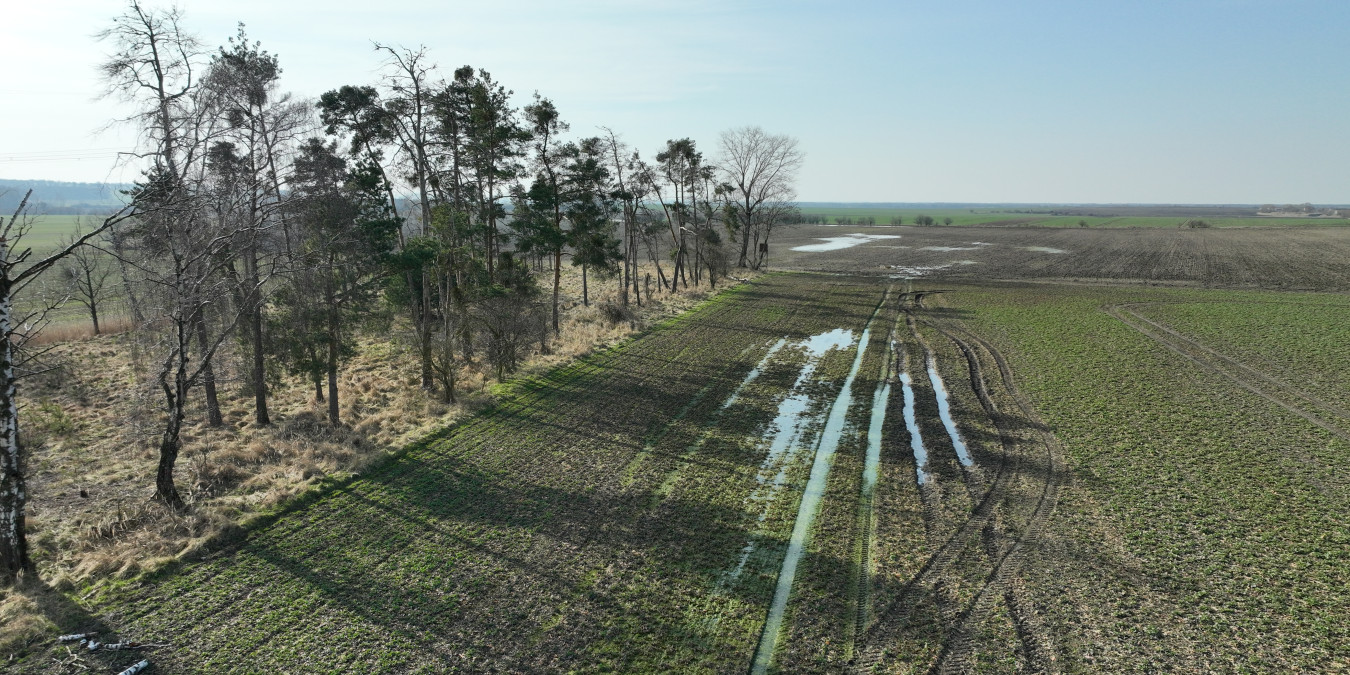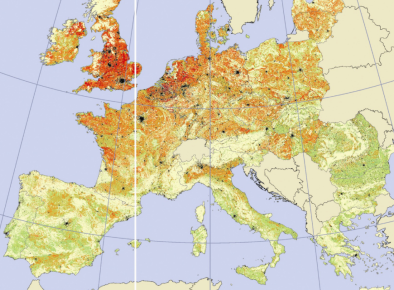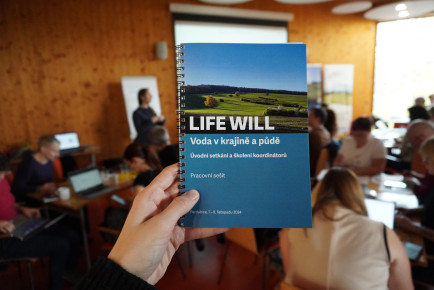Project LIFE WILL help the Czech and Slovak landscapes to adapt to climate change
Published: Dec 8, 2022 Reading time: 6 minutes Share: Share an articleThis autumn, together with our partners, we launched the project LIFE WILL - Water in Landscape and Soil. The project aims to increase the resilience of agricultural landscapes and their inhabitants to climate change. With the help of local people and using local resources, we will implement nature-based adaptation measures in three pilot sites. If the project proves successful, it may be implemented in other Czech and Slovakian locations.

What is the LIFE WILL project?
LIFE WILL - Water in Landscapes and Soils addresses the issue of drought and the impacts of climate change on landscapes. It is co-funded by the LIFE programme—a financial instrument of the European Union which is supporting projects that increase the biodiversity of the landscape and its resilience to climate change—and the Ministry of the Environment of the Czech Republic.
The project aims to increase the resilience of people and agricultural landscapes to climate change by implementing nature-based adaptation measures at the local level. This objective will be implemented using an innovative participatory methodology that helps to increase the involvement of local actors and the public and their ability to advocate for effective water retention measures in the soil and landscape. Our partners are Beleco z.s., Sdružení místních samospráv ČR and Vidiecky parlament na Slovensku.
Where will it occur?
During the first half of the project, activities will take place in 3 pilot sites. Here, the methodology will be demonstrated and subsequently adapted according to the experience gained. This experience will be used in 30 so-called replication sites (municipalities) in the Czech Republic and Slovakia.
Pilot sites:
- Velvary (ČR)
- Němčice u Kolína (ČR)
- Šterusy (SK)
The municipalities were selected based on the occurrence of negative impacts of climate change (floods, drought, erosion, degradation of nature and landscape), a feasibility study, and the interest of local actors in addressing the situation.
Why this project?
Current farming practices in the Czech Republic and Slovakia are contributing significantly to the landscape's vulnerability to the impacts of climate change, resulting in disrupted small-scale water cycles, agricultural and hydrological drought and increased flood risk. The vulnerability of the landscape to the effects of climate change is exacerbated by the historical and current consequences of economic intensification, which include: surface drainage (land reclamation), soil degradation by erosion due to heavy mechanisation and chemical use, land consolidation into homogeneous areas, reduction of biodiversity due to monoculture, and a decline in the representation of landscape features and landscape diversity. Adequate systemic tools to address landscape adaptation to climate change with public participation have not yet been developed at the national level in the Czech Republic and Slovakia. The project contributes to solving these problems by demonstrating a comprehensive participatory approach to increasing water retention in cultural landscapes in 3 selected pilot sites and its replication within the Czech Republic and Slovakia, and other EU countries.
People in Need assisted residents and municipalities during humanitarian disasters in the Czech Republic (floods, tornadoes). We are therefore aware of the urgency of the problems related to climate change's impacts. With this project, we want to support adaptation measures at the local level and use a participatory methodology to map existing barriers and provide tools to overcome them.
What are the main activities?
- Participatory mapping
The starting point for the project's next phase is a feasibility study carried out in two municipalities using the Living Landscape methodology, as named by the Living Water organisation. The methodology consists of training volunteers from the local population in participatory mapping of natural conditions and phenomena in the landscape. In the third village, the study was conducted by a local expert in hydrology and environmental conditions.
- Participatory planning
This activity involves supporting the formation of local working groups and conducting qualitative research. This work resulted in mapping local actors, consultation with landowners and users, options for implementing measures, and the identification of local perceptions of climate change impacts. The activity includes excursions, seminars, demonstrations of good practice, debates with experts, and facilitated workshops to formulate priority actions. The partners and other organisations involved will advise on preparation for implementation (preparation of project documentation, subsidy possibilities, etc.) and consultation for farmers.
- Participatory implementation
The measures to be implemented will take the form of agrotechnical and biotechnical elements in the landscape (e.g. swales, ditches, borders, polders, etc.). Local people will be encouraged to participate in the implementation of the measures using local resources.
- Participatory monitoring
Local volunteers will be trained in monitoring the impact of implemented measures on the landscape and residents. The benefit will be the validation of the experts' data and the additional motivation to maintain and expand the implemented adaptation measures.
- Replication
After evaluation and revision of the pilot phase, the methodology will be applied in other replication sites that show interest or are approached. People in Need and our partners will assist in implementing the methodology in these sites.
- Cooperation with foreign partners
During the course of the project, other partners within the EU will be involved to share experiences and good practices. These partners will also participate in evaluating the methodology and networking within the EU.
More informations on the project:
Duration: 1.9.2022 - 31.8.2027
Country: Czech republic, Slovakia
Total project budget: 2.597.269 eur
Of which EU-funded: 1.558.361 eur
In mid-March 2023, together with our partners and representatives of Němčice and Velvary, we visited the Sedmihorky wetland near Turnov. The excursion aimed to see an example of good landscape water retention in practice in a network of wetlands, i.e. using nature-based adaptation measures, as our project aims to do.
The Sedmihorky wetlands are located in the floodplain of the Libuňka River. In the last century, landowners tried to make economical use of the site, but due to the presence of several springs, the land remained waterlogged and was never used. A few years ago, enthusiasts from the Sedmihorské mokřady Land Association decided to restore it to its natural state. They managed to restore a total of 14 pools on less than six hectares, which together form a network of smaller and larger wetlands. Thanks to this restoration, the wetlands have become home to many species of birds, including ash cranes, amphibians such as sundews and martins, and aquatic invertebrates such as molluscs and insects.
Contact: climate.lifewill@peopleinneed.cz


